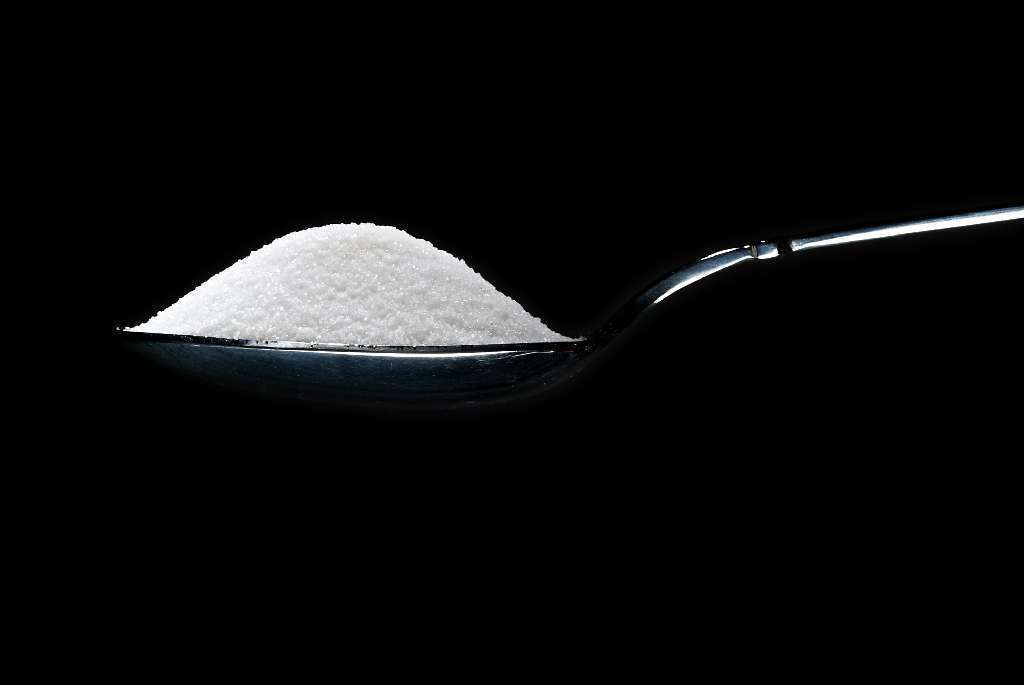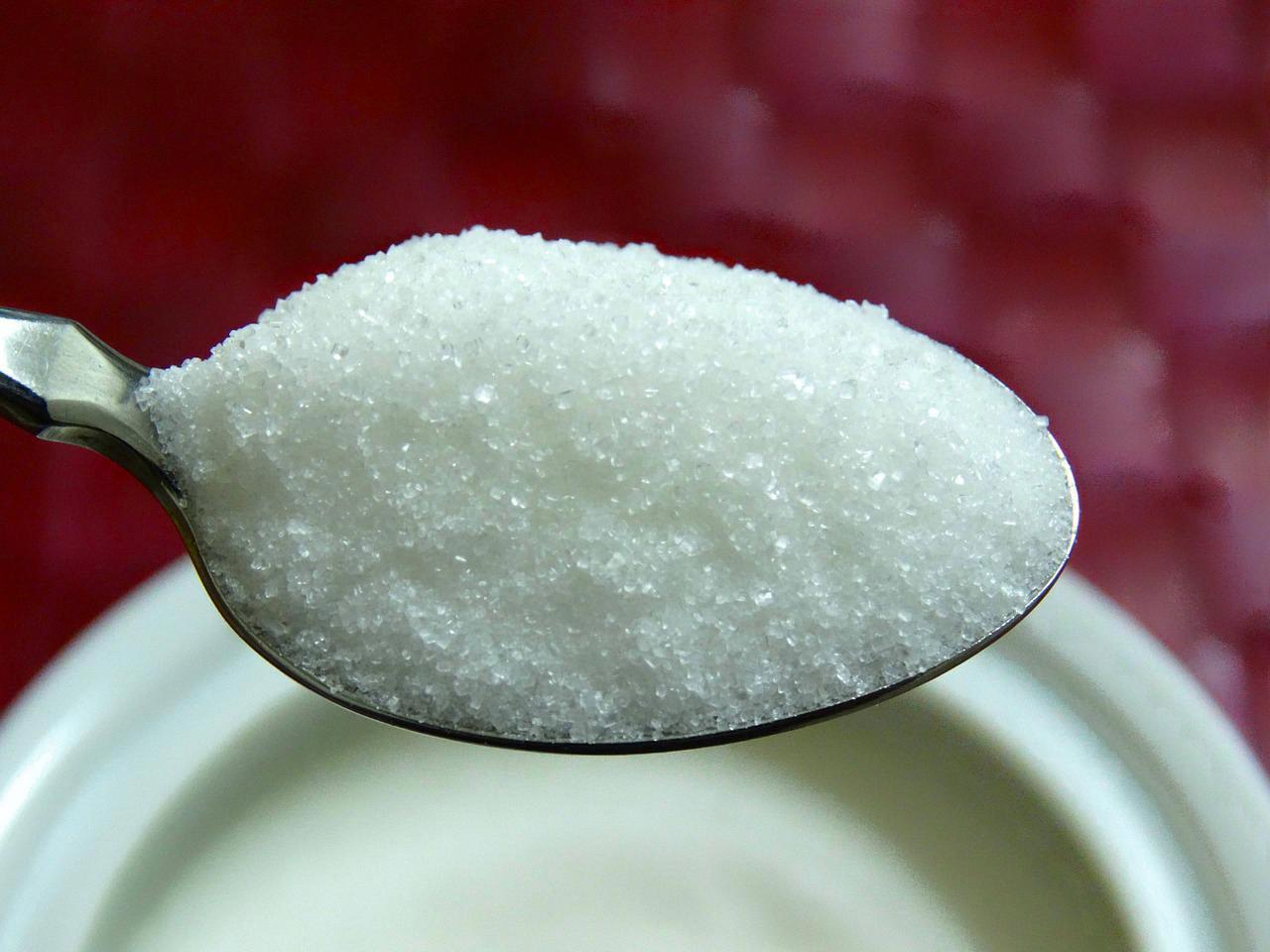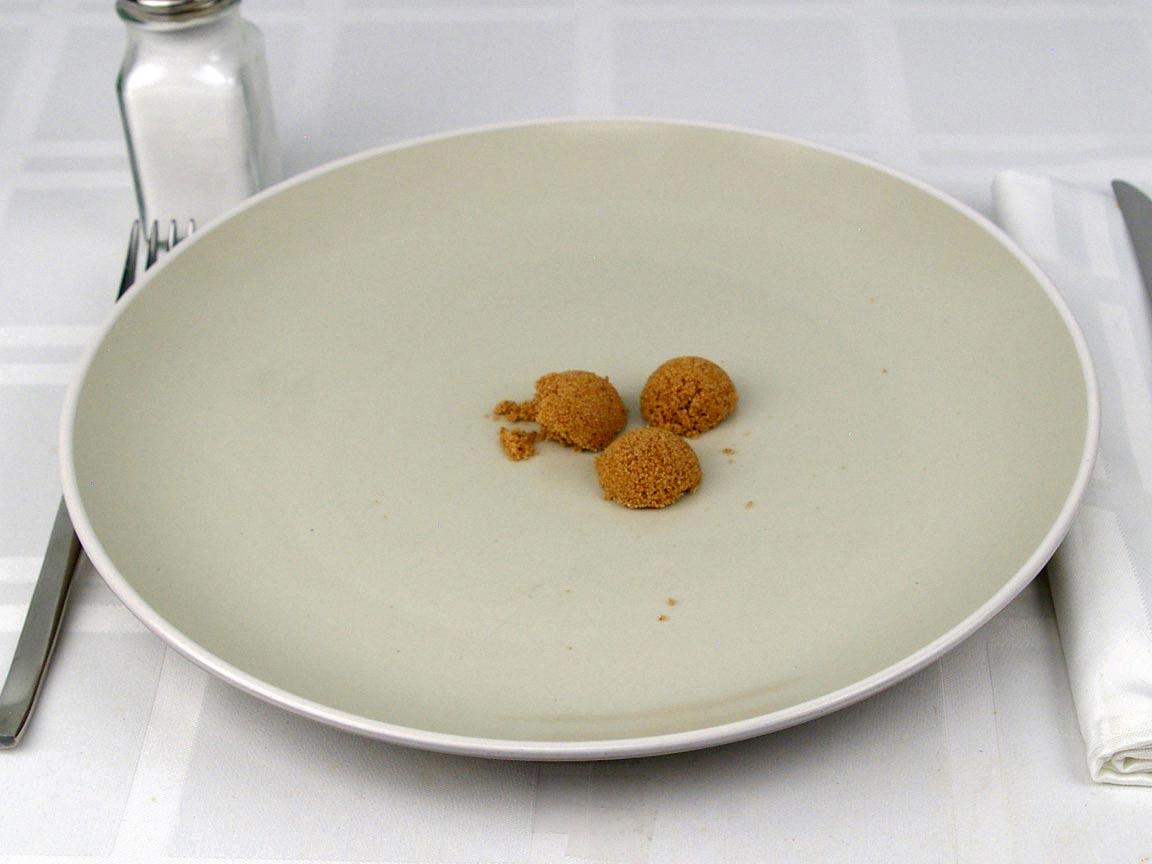Are you counting calories and trying to limit added sugars in your diet? If so, then it’s important to understand how many calories are in a teaspoon of sugar.
A teaspoon of sugar contains approximately 5 grams of carbohydrates, which translates to 20 calories. This is slightly lower than the American Heart Association’s recommended limit of 100 calories (6 teaspoons) for most adult women and 150 calories (9 teaspoons) for most adult men. However, it is important to note that honey has some advantages over sugar, including a lower glycemic index and more vitamins, minerals, and antioxidants such as calcium, potassium, vitamin C, zinc, phenolic acids, and flavonoids.
When it comes to measuring out your sugar intake, it’s important to remember that one tablespoon of sugar contains 15 grams of carbohydrates and 60 calories. That means that one tablespoon is the equivalent of thee teaspoons, or three times the amount recommended by the American Heart Association. So when you’re measuring out your daily intake of added sugars in tea or coffee – make sure you’re using a teaspoon measure!
It’s also important to consider the % Daily Value (DV) when looking at nutrition labels on food products. The DV tells you how much a nutrient in a serving contributes to your daily diet. For granulated sugar specifically – 1/2 teaspoon contains 8 calories.
So next time you reach for that spoonful of sugar – keep these facts in mind! Even though a teaspoon may not seem like much – it can add up quickly if you’re not careful!
Calorie Content of a Teaspoon of White Sugar
A teaspoon of white sugar contains 20 calories. Each gram of carbohydrate has about 4 calories, and one teaspoon of sugar has 5 grams of carbohydrate. This means that a teaspoon of white sugar has 5 x 4 = 20 calories.

How Much Sugar Is Safe to Consume in a Day?
For most adult women, the American Heart Association (AHA) recommends no more than 100 calories per day of added sugar, which is approximately 6 teaspoons or 24 grams. For men, the AHA recommends no more than 150 calories per day of added sugar, which is approximately 9 teaspoons or 36 grams. It’s important to note that these are limits for added sugars only – not naturally occurring sugars in foods. The AHA suggests limiting your intake of processed and packaged foods as much as possible, since these tend to contain higher amounts of added sugars. Additionally, be mindful of foods labeled as “low-fat” or “reduced-sugar,” as these may still contain significant amounts of added sugar. As a general rule, it’s best to limit your daily intake of added sugar and focus on eating a variety of whoe and unprocessed foods for a healthier diet.
Which Is Healthier Sugar Or Honey?
When it comes to making healthier choices, honey is a better option than sugar. Honey contains more vitamins, minerals, and antioxidants than sugar, and it also has a lower glycemic index, meaning it doesn’t affect your blood-sugar levels as much. It has been found to contain calcium, potassium, vitamin C, zinc, phenolic acids, and flavonoids. Although honey does contain more calories than sugar per gram (4 compared with 3), the additional nutrients may make up for this slight difference. Furthermore, because of its natural sweetness you may find that you need less honey than sugar when sweetening food and beverages.
How Many Calories Are In 1 2 Tsp Of Sugar?
One teaspoon of granulated sugar contains 4 calories. Therefore, a 1/2 teaspoon of granulated sugar contains 2 calories. The % Daily Value (DV) for sugar is 0%, which means that it does not contribute any nutrients to a daily diet.
Burning Off 1 Teaspoon of Sugar: How Long Does It Take?
It takes around 24 minutes of doing homework, 14 minutes of walking, cycling or dancing, 8 minutes of running or swimming and 10 minutes of sweeping or vacuuming for an adult to burn off 1 teaspoon of sugar. For a child up to the age of 12, it would take 14 minutes of walking, cycling or dancing, 5 minutes of running or swimming and 7 minutes of sweeping or vacuuming to burn off the same amount.

Source: hsph.harvard.edu
The Health Benefits of Natural Sugars
The healthiest form of sugar is unrefined, natural sugars like coconut sugar, date sugar, and maple syrup. These unrefined sugars contain minerals and vitamins that are stripped away in the refining process of white and brown sugars. Coconut sugar has a low glycemic index which helps to prevent spikes in insulin levels and can even help regulate blood glucose levels. Date sugar is packed with antioxidants, vitamins, and minerals that are beneficial for overall health. Maple syrup cntains a variety of trace minerals such as manganese, zinc, potassium and calcium. These natural sugars can be used as substitutes for refined white or brown sugar when baking or cooking.
How Much Sugar Is In A Coke?
In a 330 ml can of Coca‑Cola Original Taste, there is approximately 35 g of sugar. This is equivalent to 10.6 g of sugar per 100 ml, which is slightly more than a teaspoon of sugar per 100 ml.
Cutting Sugar Out of Your Diet
Cutting sugar out of your diet doesn’t have to be difficult – it just takes a bit of planning. Here are some tips:
1. Choose whole foods such as fresh fruits, vegetables, legumes and lean proteins. These will give you the energy you need without added sugars.
2. Read labels when grocery shopping, and choose foods that are lower in sugar or don’t conain added sugars.
3. Swap sugary snacks for healthier options like nuts, seeds or plain popcorn.
4. Instead of sugary drinks (like sodas and juices) opt for water, sugar-free or no-added-sugar drinks or lower-fat milks.
5. If you take sugar in tea or coffee, gradually reduce the amount until you can cut it out altogether, or try swapping to sweeteners instead.
Does Consuming Sugar Lead to Weight Gain?
Sugar does not directly make you fat, however it can contribute to weight gain. It is important to remember that all calories, including those from sugar, count towards your total caloric intake for the day. Eating too many calories, regardless of the source, will cause weight gain over time.
Consuming too much sugar has been linked to many health issues such as obesity, type 2 diabetes and heart disease. This is because it’s easy to overeat sugary foods and drinks due to thir high calorie content without feeling full or satisfied. High-sugar diets often lack essential vitamins and minerals needed for good health. In addition, eating high amounts of sugar can lead to spikes in your blood sugar levels which can cause cravings and further contribute to weight gain.
It is important to be mindful of the amount of sugar you consume in order to maintain a healthy weight and diet. Limiting added sugars in your diet and opting for healthier alternatives such as fresh fruits and vegetables can help you stay on track with your health goals.

The Health Benefits of Maple Syrup Compared to Sugar
Yes, maple syrup is generally considered healthier than table sugar. It has fewer calories and contains a range of beneficial antioxidants and minerals. Maple syrup is also lower on the glycemic index than table sugar, meaning it won’t cause a spike in blood sugar that can lead to energy crashes. Additionally, unlike processed sugars such as high fructose corn syrup, pure maple syrup is less processed and contains no artificial ingredients or preservatives. This makes it a great natural alternative to refined sugars for those looking for a more health-conscious sweetener.
Is Maple Syrup a Healthier Alternative to Brown Sugar?
Yes, maple syrup is generally healthier than brown sugar. Maple syrup contains more beneficial vitamins and minerals than brown sugar, including calcium, iron, magnesium, potassium, zinc, copper, and manganese. These minerals help with cell formation, red blood cell production, and immune system support. Additionally, maple syrup has a lower glycemic index than brown sugar which helps to prevent rapid spikes in blood sugar levels. This makes it a healthier alternative for people with diabetes or those looking to manage teir blood sugar levels. All in all, nutritionists recommend using real maple syrup instead of brown sugar as a sweetener whenever possible.
Is Brown Sugar Healthier Than White Sugar?
No, brown sugar is not necessarily better for you than white sugar. While it does contain slightly more minerals than white sugar, the amount is negligible and won’t provide any health benefits. The main difference between brown and white sugar is the way they are processed – brown sugar is simply refined white sugar with molasses added to it. Nutritionally, they are very similar. Both kinds of sugar contain empty calories, meaning they provide energy but no nutrients, so it’s best to limit your intake of both types of sugars for optimal health.
How Many Teaspoons Of Sugar Is OK Daily?
According to the 2015-2020 Dietary Guidelines for Americans, it is recommended to limit added sugars to no more than 10% of total daily calories, which amounts to 200 calories or 12 teaspoons of sugar for a 2,000 calorie diet. Added sugars are sugars and syrups that are added to foods during processing or preparation. Examples include table sugar, brown sugar, honey, corn syrup, high-fructose corn syrup, and fruit juice concentrates. Therefore, it is advised to limit added sugars in your daily diet to no more than 12 teaspoons of sugar per day.

Source: caloriefriend.com
Is Consuming 12 Teaspoons of Sugar Per Day Excessive?
Yes, 12 teaspoons of sugar a day is too much. The American Heart Association recommends that men should consume no more than 9 teaspoons (36 grams or 150 calories) of added sugar per day, and women should consume no more than 6 teaspoons (25 grams or 100 calories) per day. Eating 12 teaspoons of sugar a day puts the individual at risk for developing health problems, such as obesity, diabetes, and heart disease. Additionally, consuming this amount of added sugar daily can lead to tooth decay, cavities, and other oral health issues.
Conclusion
In conclusion, sugar is an important source of energy and should be consumed in moderation. One teaspoon of sugar contains 5 grams of carbohydrates and 20 calories, which is a small amount when compared to the daily recommended limits set by the AHA. While honey does have some advantages over sugar, it is still important to keep track of your daily intake of added sugars. Consuming too much sugar can lead to health problems such as weight gain, diabetes and other metabolic diseases. Therefore, it is important to be mindful of your sugar intake and choose healthier alternatives when possible.
